Alumni Spotlight
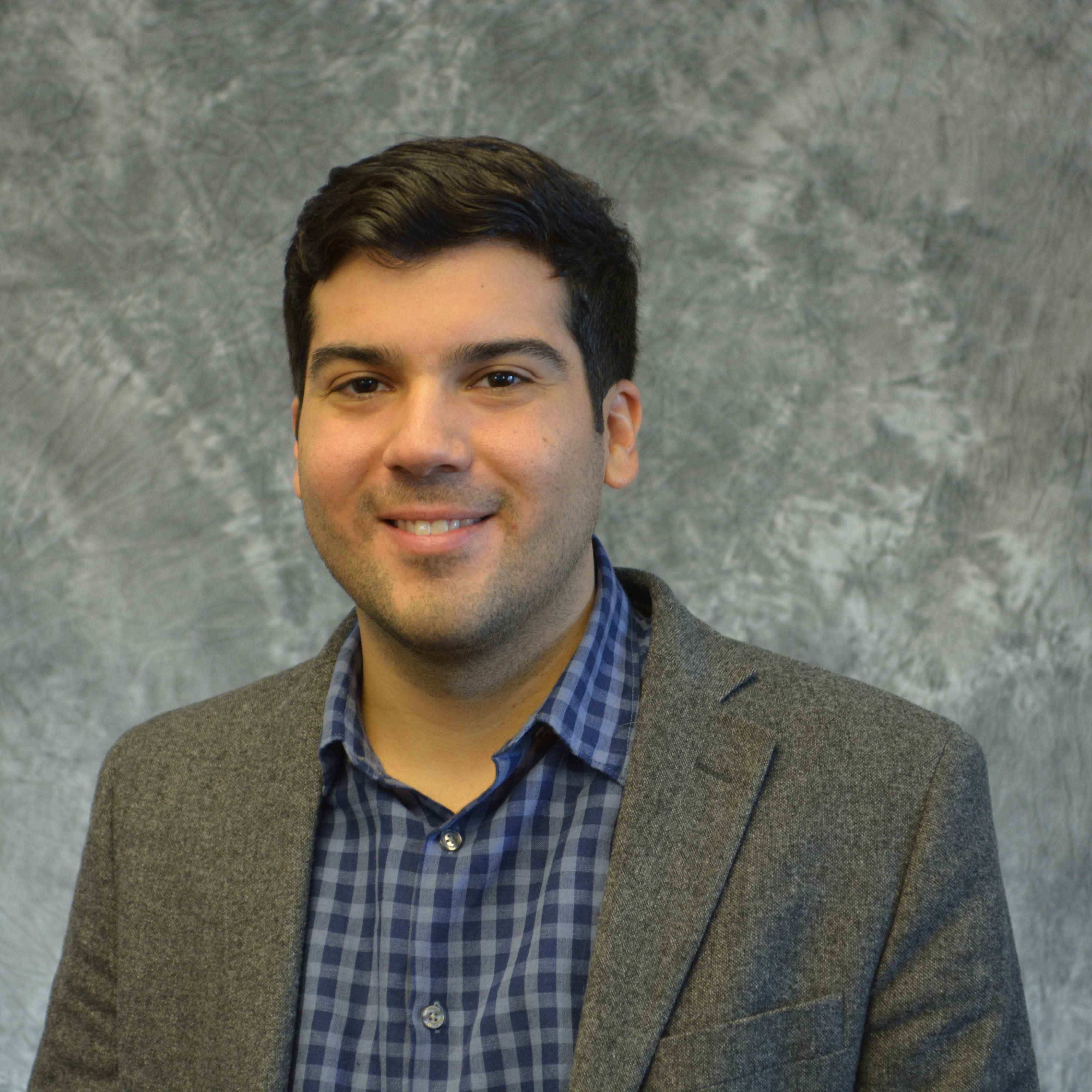
Aaron Arredondo
MA in Sociology | 2015
Doctoral Student, University of Missouri
What advice would you give current students or recent graduates interested in pursuing
a career in your field?
As someone who has remained in academia, my advice is to establish a good work ethic,
map out your career-related goals at least 2-3 years in advance, attend conferences
regularly, and to be friendly with everyone. The academic job market is a restricted
one and I have seen many peers across universities lose motivation following through
such an intensive scholarly development, especially when they experience intellectual
alienation and a lack of structure. Identify those scholars that believe in you and
in your work and allow them to guide you, while not undermining your own initiative.
Why did you choose to purse an MA in Sociology at the UA?
I decided to pursue an MA in sociology at UA to study with Dr. Bustamante, who like
myself had lived in the south Texas borderlands. With his guidance, and that of other
faculty in the department, I developed my current line of work on Latinx experiences
of racial space in the immigrant South. This was informed through an account of my
own when finding myself out of place after relocating to northwest Arkansas from Mexican
south Texas. I found a welcoming and supportive home in the sociology department at
UA—one that fostered and nurtured my potential at pursuing an intellectual profession
and at promoting change through teaching, service, and scholarship.
What did you do upon graduating from the MA in Sociology program?
Upon graduating with my master’s in sociology from UA, I went directly into the sociology
PhD program at the University of Missouri. At MU, I have been able to further develop
the line of research I established at UA. This has enabled me to present my work at
the ASA, publish book reviews on topics within my expertise, serve as reviewer for
a journal, and transform my MA thesis into a peer-reviewed journal article. Because
at UA Sociology I acquired the necessary skills and momentum to become a successful
scholar, I have remained active as a student, teacher, and researcher as I move toward
a sociology faculty position at a university.
What is your greatest professional accomplishment?
My greatest professional accomplishment has been getting my master’s thesis accepted
for publication in the peer-reviewed journal Sociological Inquiry. This is the culmination of an ongoing four-year effort guided by the support of
Dr. Bustamante, who is co-author, and of Dr. Zajicek who has offered extensive feedback
on various iterations of this project.
How did your education in the MA Sociology Program prepare you for what you are doing
today?
Through my education in the MA sociology program at UA, I attained the methodological
and analytical skills that continue to guide my research practice and theoretical
development today. Taking various methodological, theoretical, and substantive classes
with many of the faculty in the department has awarded me the confidence to propose
new directions in the field and to understand how to effectively approach various
research settings.
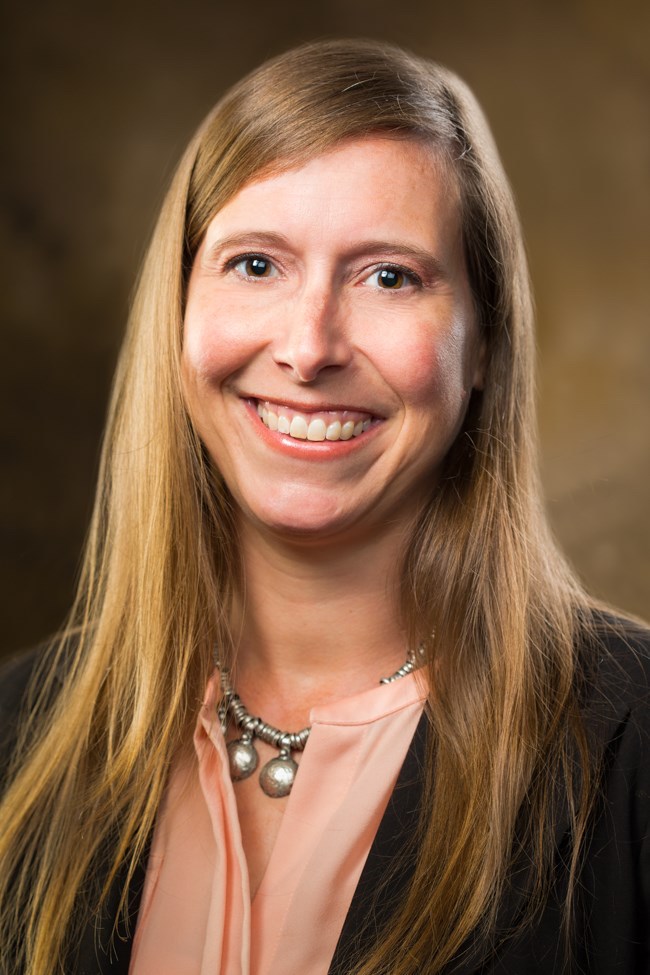
Erica Estes
MA in Sociology | 1999
Director of Employer Relations for Fulbright College of Arts and Sciences
Why did you choose to purse an MA in Sociology at the UofA?
I chose to pursue an MA in Sociology at the UofA because I was interested in researching
social stratification issues, particularly the impact that the second wave feminist
movement had on the NWA community and on individual women in the area. At the time,
Dr. Zajicek had been awarded a grant to conduct an oral history project on which I
was fortunate to serve as a Research Assistant. From my graduate experience, I learned
how much I loved listening to people’s stories and connecting their stories to larger
sociological phenomena.
What is your greatest professional accomplishment?
My greatest professional accomplishment is a harder question to answer because I think
every year I have an accomplishment that I’m proud of. The past year, I have been
given the opportunity to learn, practice, teach and collaborate around campus with
Life Design. Life Design uses design thinking framework and mindset to help students
build out their future. I was awarded a scholarship to attend Stanford University’s
Life Design Studio in summer 2018, which just began the wonderful journey. It’s been
fascinating to see how students respond to this concept and the activities, and also
to develop partnerships around campus to incorporate this idea into curriculum and
programming.
Get to Know a Fulbright Alum and Current Staff Member by Katie Burkhart
Most Fulbright College students recognize the name Erica Estes from the weekly Career
Insider emails she sends out. But, there’s more they might not know about her. Estes
is an alum of the University of Arkansas and Fulbright College.
She got her B.A. in psychology with a minor in gender studies. Dr. Anna Zajicek, now chair of the sociology department, helped her make the decision to continue her education and to work toward an M.A. in sociology. After working as Dr. Zajicek’s research assistant, she became Estes’ lifelong mentor.
Upon graduation, Estes knew she wanted to work toward equality for women, but didn’t know exactly which role. So, she moved to Baltimore and after a month job search, became a child counselor for a domestic violence agency. She worked there for less than two years, but is still close to her coworkers to this day because of the intensity of the work they did together.
“I learned my passion for advocacy and education,” Estes said.
She then spent five years in staff development for a foster care agency. When she moved back to Arkansas, she got a job with the University of Arkansas thanks to her connections to Fulbright College.
“I combined all the skills I learned from psychology, sociology, counseling and training to be a career counselor,” Estes said. She moved up over the years and is now the Director of Employer Relations for Fulbright College.
She says the relationships with her professors gave her the confidence to keep moving forward.
“The time and energy they invested in me made me feel special and helped me to understand my qualifications and unique traits,” Estes said.
Estes says she thinks it’s really important to stay connected to your department after graduation because it helps the college and faculty to educate current students on the career paths that are possible. “It also reminds you of your core values as an intellectual and a professional,” she said.
In her current job, she uses her degrees to understand how and why people make the decisions they do, and the value of further investigation into the complexity of systems, processes, and groups of people.
“I think my education and previous jobs are what gives me a drive to fight for the underdogs and wanderers,” Estes said.
Estes is a prime example of a Fulbright alum who was unsure about what to do with her degrees and education, but went on to learn more about herself through different careers. She finally ended up back where it all began; she spends every day working in Old Main for Fulbright College.
She got her B.A. in psychology with a minor in gender studies. Dr. Anna Zajicek, now chair of the sociology department, helped her make the decision to continue her education and to work toward an M.A. in sociology. After working as Dr. Zajicek’s research assistant, she became Estes’ lifelong mentor.
Upon graduation, Estes knew she wanted to work toward equality for women, but didn’t know exactly which role. So, she moved to Baltimore and after a month job search, became a child counselor for a domestic violence agency. She worked there for less than two years, but is still close to her coworkers to this day because of the intensity of the work they did together.
“I learned my passion for advocacy and education,” Estes said.
She then spent five years in staff development for a foster care agency. When she moved back to Arkansas, she got a job with the University of Arkansas thanks to her connections to Fulbright College.
“I combined all the skills I learned from psychology, sociology, counseling and training to be a career counselor,” Estes said. She moved up over the years and is now the Director of Employer Relations for Fulbright College.
She says the relationships with her professors gave her the confidence to keep moving forward.
“The time and energy they invested in me made me feel special and helped me to understand my qualifications and unique traits,” Estes said.
Estes says she thinks it’s really important to stay connected to your department after graduation because it helps the college and faculty to educate current students on the career paths that are possible. “It also reminds you of your core values as an intellectual and a professional,” she said.
In her current job, she uses her degrees to understand how and why people make the decisions they do, and the value of further investigation into the complexity of systems, processes, and groups of people.
“I think my education and previous jobs are what gives me a drive to fight for the underdogs and wanderers,” Estes said.
Estes is a prime example of a Fulbright alum who was unsure about what to do with her degrees and education, but went on to learn more about herself through different careers. She finally ended up back where it all began; she spends every day working in Old Main for Fulbright College.
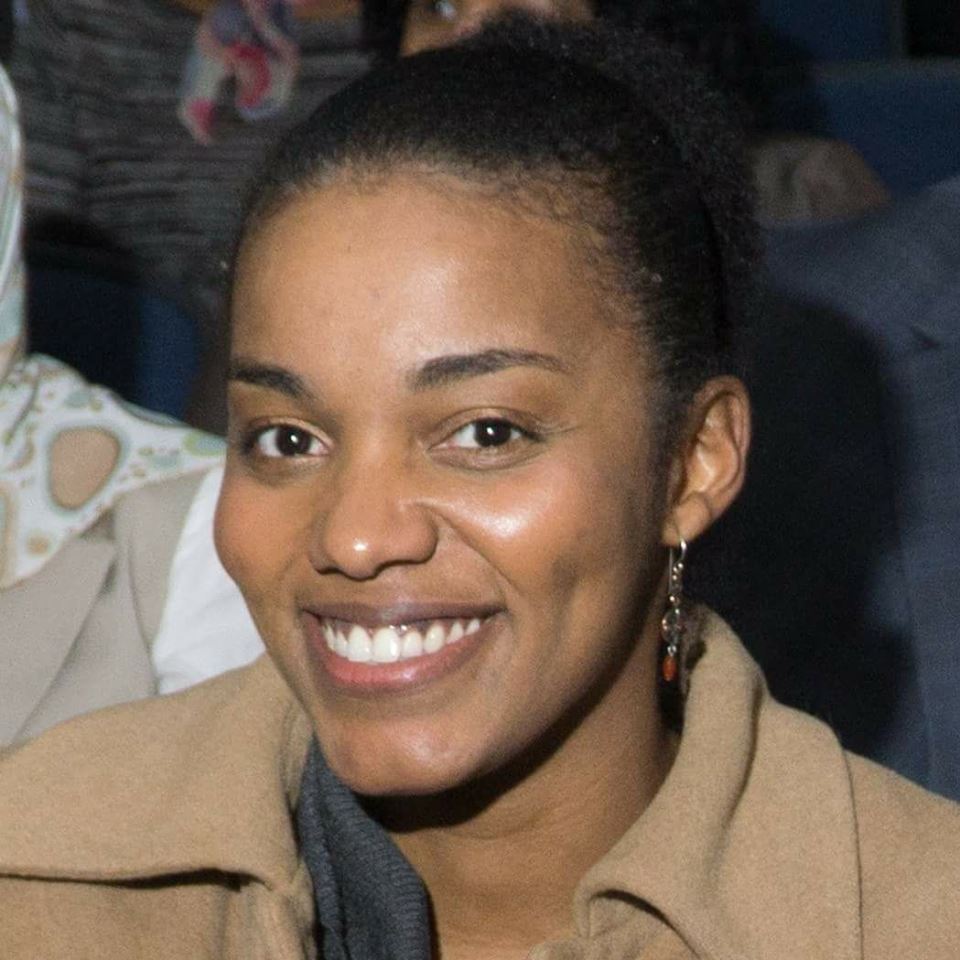
Dahlia Evans-Vertreese
MA in Sociology | 1995
Mayor of The Township of Hillside, NJ
How did your education in the MA Sociology program prepare you for what you are doing
today?
In her work with labor unions, Dahlia credits the Sociology program in helping her
navigate perspectives and understand where people were coming from, helping her to
develop win-win situations in managing conflicts. The program also helped her understand
what fair meant – this helped her as a manager to see different viewpoints and understand
why people acted the way they did.
As a teacher, Dahlia credits faculty in the Sociology program for helping her to develop
a strong ability to compare and contrast. Faculty always encouraged her to question
her ideology and opinions and to look at other perspectives, a skillset she transferred
to her own students.
Writing was one of the skillsets that Dahlia says prepared her for all of her opportunities.
The constant editing and reflecting on her own work led her to develop this skill
which she views as her personal strength. She believes constant reflection helped
her to develop grit. Faculty in the program provided an interactive learning process
and nurturing environment that pushed her to develop her work and helped her to feel
comfortable to take chances because she trusted her professors to give advice that
would ultimately help her to become a better student and writer.
Why did you choose to pursue an MA in sociology at the UA?
Dahlia holds an undergraduate degree in Criminal Justice and History and was interested
in relationships, an interest that would eventually lead her to politics. Her father
was a civically engaged policy officer. This, coupled with her love of statistics
and analyzing how and why people make decisions, led to an interest and calling toward
relationships, which she followed once in school.
What did you do upon graduating from the MA in Sociology program?
Dahlia was initially interested in law school and pursued opportunities that would
lead her down that path. She worked for Walmart Legal where she dealt with relationships,
perspectives, how issues related to circumstances, employee misunderstandings, and
why employees engaged in various behaviors. From there she went to work for a law
firm and then on to labor and employee relations where she managed public school labor
unions in New Jersey.
Life circumstances led her into the classroom where she experienced life in the “trenches”
of her community, working directly with the population she served during her time
with the unions. She still found herself serving as a troubleshooter and problem solver,
especially via trainings and workshops with other teachers. She taught such topics
as History and Holocaust/Genocide at the High School level. She also taught AP courses
where she raised the rate of passing scores for students.
After her time teaching she returned to work with the labor unions, which bloomed
into other responsibilities. Her ability to question, speak out, and be involved (all
skillsets she attributes to her education at the UA) led her to Labor Candidate School
where she was chosen as a leader (or Labor Organizer). Today she continues to serve
as a Labor Organizer as well as the Mayor of The Township of Hillside in New Jersey.
What is your greatest professional accomplishment?
Dahlia fondly discusses her students (from her time teaching) as her greatest accomplishment.
One student in particular left a lasting impression. She refers to this student as
brilliant, but due to life and financial circumstances, did not intend to pursue college.
Dahlia worked with this student to apply to scholarships programs and schools. The
student went on to pursue a full-ride at Emory University and now works at CSPAN and
alongside the LA police department on issues such as inclusion, diversity, transgender
issues, and intervention measures before arrest. Dahlia states, “she’s my mentoree”
and I was able to be the path that helped her reach these accomplishments.
How did your education in the MA Sociology program prepare you for what you are doing
today?
In her work with labor unions, Dahlia credits the Sociology program in helping her
navigate perspectives and understand where people were coming from, helping her to
develop win-win situations in managing conflicts. The program also helped her understand
what fair meant – this helped her as a manager to see different viewpoints and understand
why people acted the way they did.
As a teacher, Dahlia credits faculty in the Sociology program for helping her to develop
a strong ability to compare and contrast. Faculty always encouraged her to question
her ideology and opinions and to look at other perspectives, a skillset she transferred
to her own students.
Writing was one of the skillsets that Dahlia says prepared her for all of her opportunities.
The constant editing and reflecting on her own work led her to develop this skill
which she views as her personal strength. She believes constant reflection helped
her to develop grit. Faculty in the program provided an interactive learning process
and nurturing environment that pushed her to develop her work and helped her to feel
comfortable to take chances because she trusted her professors to give advice that
would ultimately help her to become a better student and writer.
What advice would you give current students or recent graduates interested in pursuing
a career in your field?
Dahlia believes communication is a weakness for many people and overall, a lost art.
The ability to talk and discuss difficulties is important and difficult for many people,
all conflict is not negative. She encourages students to be grateful for constructive
criticism, grapple with it, and continue to ask questions. These skills help build
leaders. She also encourages students to read constantly, fact check, look for both
sides of the story, and don’t ever just read what appeals to you but also what you
disagree with. This prepares students for building relationships after graduation.
Dahlia notes that she couldn’t have received a better education anywhere else and
that “choosing the University of Arkansas was the best honor ever”.
[interviewed by Larra Rucker]
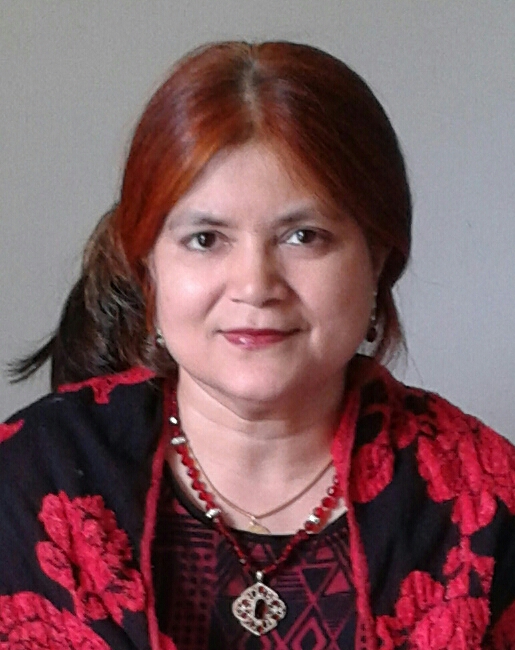
Bilquis Ferdousi, Ph.D.
MA in Sociology | 1998
Associate Professor, School of Information Security & Applied Computing, College of
Technology
What advice would you give current students or recent graduates interested in pursuing
a career in your field?
Degree in sociology can prepare you for a lifetime change by developing your appreciation
of diversity; and knowledge about human behavior, social organization, culture, and
social change that we all are going thorough, especially with fast changing computer
technology. We all see how computer has become the essential part of our daily life
and how it’s significantly changing the society or way of our life. So what you are
learning today in sociology that could be helpful and resourceful for rest of your
life, even if you later pursue academic degree and career in computer field.
Why did you choose to purse an MA in Sociology at the UofA?
With my previous academic background in social psychology I became interested to extend
my knowledge and learning in social organization, culture, and social changes. So
I choose to purse an MA in Sociology at the University of Arkansas where I found very
supporting and dedicated faculty members like Anna Zajicek and others.
What did you do upon graduating from the MA in Sociology program?
After graduating MA in Sociology, I pursued MSc in Information Systems and later Ph.D.
in Information Systems. In fall 2001, I started my academic career as full-time faculty
of Information Technology at a community college in Virginia. Currently I am Associate
Professor of Information Assurance & Cyber Defense and Information Technology at Eastern
Michigan University. Before I join here I was Associate Professor of Information Technology
at University of Cincinnati.
What is your greatest professional accomplishment?
I think my greatest professional accomplishment is being good instructor and mentor
to my students, especially when I see them being successful in their academic endeavor
and career. I always believe that educational institutions are the most civilized
and distinguished part of the society and I always wanted to be a professional member
of it.
In fact, I born and raised in an academic family and followed my father and brother
to be university faculty.
How did your education in the MA Sociology Program prepare you for what you are doing
today?
Although my current academic profession is in computer program, but MA in Sociology
has significant contribution in my career as a faculty and researcher in computer
field. In my research and classroom instruction, whenever possible, I try to correlate
computer technology to the society. Keeping in mind that computer is just a technology
that has no value if it’s not accepted by the members in society, I always try to
apply social theory in my research on computer technology acceptance. With increasing
threat to people’s privacy and security, especially because of prevalent use of mobile
technology, social medial, etc. focusing on social and psychological factors becoming
important to researchers in computer technology field. In fact, I am currently writing
for a NSF research grant proposal on technology acceptance based on theoretical models
roots in sociology and psychology. My sociology background also helped me to better
prepare for couple of introductory graduate courses like Intro to Technology and Society.
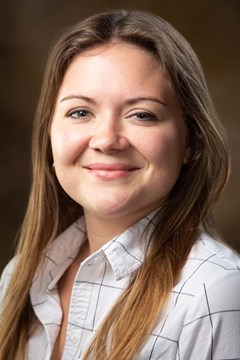
Megan Handley
BA and MA in Sociology | 2015
Project Director for a Grant Housed in the Health, Human Performance, and Recreation
Department at the University of Arkansas
Why did you choose to purse an MA in Sociology at the UofA?
The faculty in the Sociology and Criminology department were outstanding. I was fortunate to
receive excellent mentoring while obtaining my BA, and decided to stay for my MA to
build on those relationships.
How did your education in the MA Sociology Program prepare you for what you are doing
today?
My education in the MA Sociology Program is the reason that I am doing what I do today.
It provided me with the research experience that is required for my current position.
The MA Sociology program provided me with the opportunity to collaborate on multi-person
research projects, lead those research projects, and equipped with the knowledge and
experience to be successful in what I'm doing now. Also, I made connections and networks
that helped launch my career.
What did you do upon graduating from the MA in Sociology program?
Immediately following graduation, I moved out of the country briefly. Upon returning,
I travelled around the U.S. before settling down in Fayetteville to pursue a career
as a Criminology/Sociology Instructor for the U of A. Shortly after taking on the
role as Instructor, I accepted a position as Project Director for a grant housed in
the Health, Human Performance, and Recreation department at the U of A. This is my
current position.
What is your greatest professional accomplishment?
My greatest professional accomplishments are 1) completing and successfully defending
my Master's thesis, and 2) accepting the position as Program Director for a research
grant aimed at developing and assessing measures for social surveys.
What advice would you give current students or recent graduates interested in pursuing
a career in your field?
Don't listen to people that tell you that getting a degree in the social sciences
is pointless, or not useful in the work place. To put it bluntly - they are wrong.
My foundation in Sociology has benefited me greatly, both professionally and personally.
More importantly, I don't feel like my experience is an isolated one. Follow your
passions - it makes life more fun.
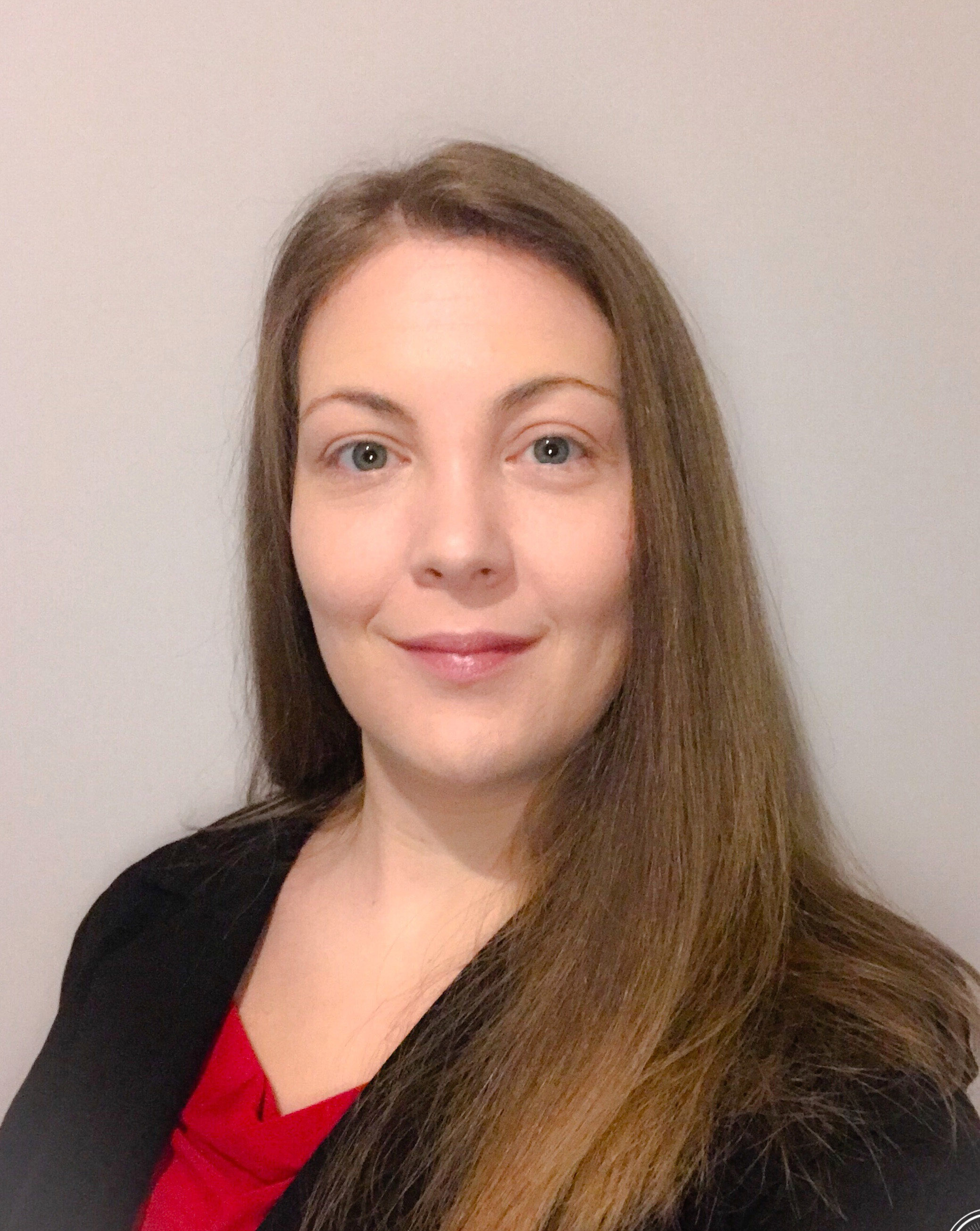
Shila René Hawk, Ph.D.
BA and MA in Sociology | 2010
Applied Research Services, Inc.
Biography
Shila René Hawk, Ph.D. is a graduate of the University of Arkansas and Georgia State
University. She has been working at Applied Research Services, Inc. (ARS) since 2014.
Based in Atlanta, ARS is a private, small business consulting firm specializing in
complex research design and analysis to support public policy, programming, and legislative
decisions. ARS has a multi-disciplinary team of criminologists, psychologists and
research scientists. ARS clients include law enforcement, state and local courts,
and secure and community corrections agencies, as well as various public policy stakeholders.
Dr. Hawk’s primary research efforts are focused on evidence-based law enforcement,
violent crime, and data science. At ARS, she is lead research partner for the Northern
and Southern Districts of Georgia U.S. Attorney’s Offices and a dozen policing agencies
on strategies to mitigate recurrent violence, gun-involved crime, retaliatory shootings,
gang violence, victimization, and community trauma. Other projects include improving
police legitimacy, investigation clearances, violent-incident reporting, and data
utilization. Dr. Hawk is also an expert in Georgia criminal justice databases and
contributes to an array of projects at ARS via data management, DBA integration, and
analyses. For example, she maintains the GA electronic criminal history repository
and has helped develop computerized risk assessment protocols in multiple states for
jails and community corrections. She has experience with various secondary database
types, as well as overseen original data collection using mixed methods, can program
in multiple languages, and is trained in a range of statistical techniques. Her mission
is to promotes data-driven decision making and rigorous research evaluations designed
to strengthen the criminal justice system.
Dr. Hawk is a Bureau of Justice Assistance Smart Suite Researcher Practitioner Fellows
and holds a full board of Social Science Panel & Health Insurance Privacy and Portability
Act Compliance Certifications. She is certified by the Georgia Gang Investigators
Association and the Skill-Based Practitioner Training Program in Injury and Violence
Prevention. Dr. Hawk teaches online courses for the University of Arkansas and mentors
graduate students at several universities. She regularly presents at conferences and
justice agencies in the U.S. and abroad. She is an active committee member of the
Homicide Research Working Group and on the Homicide Studies Editorial Board. Her work
can be found in prestigious journals such as Criminology, Criminal Justice & Behavior,
Justice Quarterly, and the British Journal of Criminology.
Why did you choose to purse an MA in Sociology at the UofA?
I was originally attracted to sociology as an undergraduate at the UofA. My enrollment
advisor described the field as a breadth of information from across disciplines, integrated
in a way that helps with overall maturation. Therefore, the introduction course seemed
as fundamental as math and history. That class motivated me want to take another.
I quickly realized that the social sciences could help me make sense of humanity,
and thus my purpose within it.
Why, you might ask, did I feel unsure of the world and how I fit into it? Well for
one, it is a somewhat universal ignorance as youths (defined by time) have limited
exposure to the vast array of cultures and the ideologies of societal antiquity. I
had also experienced serious disfunction in my prior community, academic, and personal
relationships. I was hungry to comprehend and contextualize those (and future) interactions
towards personal and professional growth. The more courses I took in the department,
the more I understood the importance of studying sociology as it relates to citizenship
skills and liberty.
I had never felt particularly inspired by or good at anything until I double majored
in sociology and criminal justice. I became fascinated with the effects of perceptions,
structural inequality, and systemic problems. I started to question everything.
A couple of professors regularly stayed after class and scheduled meetings with me
to answer or discuss theories, practice, methods, and statistics. The professors’
enthusiasm was contagious, and their expertise admirable. Not only did I gain significant
new insights, they taught me to think critically and communicate better. Those same
professors encouraged me to pursue an advanced degree and wrote letters of recommendation
for my packet. I was not completely sure I belonged in graduate school, but I wanted
to learn more and knew it was my path to a meaningful career. In the MA program, I
became obsessed by the process and implications of research that carries through to
today.
What did you do upon graduating from the MA in Sociology program?
I continued to work on research manuscripts and database development with UofA professors
while moving to Atlanta, GA. That fall I enrolled at Georgia State University as a
member of the inaugural Criminology and Criminal Justice doctoral program cohort.
I worked as a research assistant while getting my Ph.D. for the next four years, then
took a job with my current employer. I have been at Applied Research Services, Inc.
for five years now, and love my ever evolving and interesting projects.
What is your greatest professional accomplishment?
My overarching goal has always been to have a career that I am passionate about and
with purpose. I accomplished that; my work helps people. Every day I get to use evidence
to help improve policy and practice in the criminal justice system, as well as expand
the research literature. I could not be prouder of my colleagues and our output.
How did your education in the MA Sociology Program prepare you for what you are doing
today?
The foundation of my research and all research-related services can be traced back
to the UofA Sociology MA program. I was able to build upon that strong foundation
in my doctoral program and ultimately it resulted in me being a Subject Matter Expert,
research consultant, and data scientist. It was the UofA faculty’s guidance that led
me to define an area of interest, nurtured quintessential methods and analyses understandings,
and provided the opportunity for my first experiences in conducting studies. I often
advise on evidence-based practices by digesting the existing literature, determining
its validity, and helping clients know how to apply it. We regularly did this in my
MA courses. I design data protocols, monitor implementation, and evaluate effectiveness,
by testing hypotheses and making appropriate inferences from findings, as was required
by my thesis. Lastly, the mentoring continues to be invaluable, both professionally
and personally, as my primary mentors are among my favorite people.
What advice would you give current students or recent graduates interested in pursuing
a career in your field?
Orient to your degree as though it is the start of your career, because it is! If
you do that, you will likely invest in your education more deliberately and holistically
than others do. This will set you apart, which will lead to additional opportunities
and honors. While others are competing with classmates, you will find ways to learn
from and leverage their strengths for your own success. You will continue to raise
the bar for yourself, dependably feeling challenged to improve your own capabilities.
You won’t be looking for excuses to skip class or assignments, rather ways to develop
marketable skills and a bankable network. The value of your own time and others will
increase, boosting your productivity and preeminence. Overall, your confidence, competence,
and resume will expand, thus making you attractive to prospective employers.
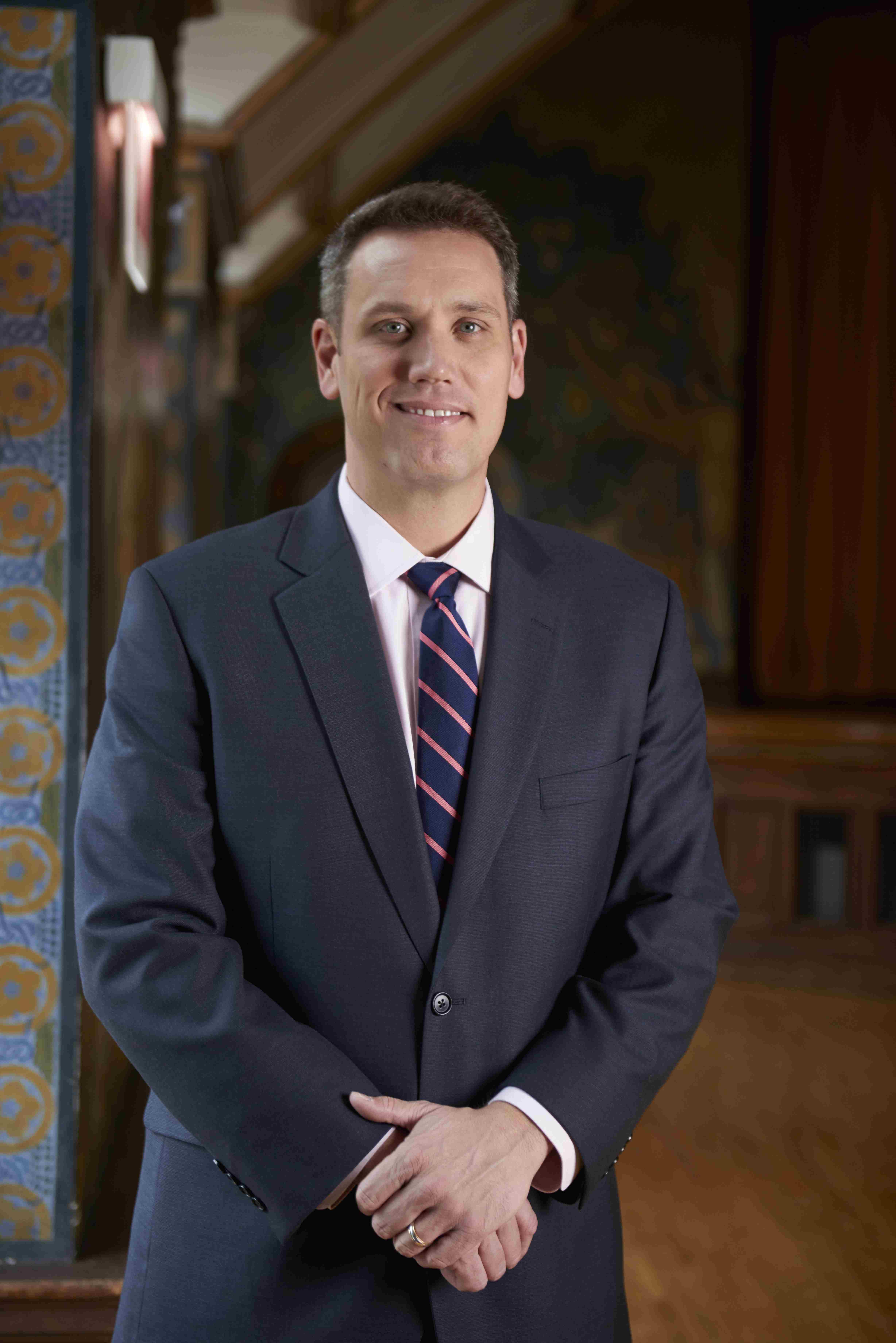
Eric Heath
BA and MA in Sociology | 2008
Associate Vice President for the University of Chicago’s Department of Safety and
Security
Biography:
Eric M. Heath serves as the Associate Vice President for the University of Chicago’s
Department of Safety and Security. In this role, Eric oversees a multi-faceted public
safety agency that includes the University’s Police Department (an accredited law
enforcement agency), Environmental Health and Safety, Transportation and Parking,
Emergency Management and several other public safety units. Prior to returning to
the University of Chicago, Eric was the Assistant Vice President for Public Safety
and Chief of Police for George Mason University’ Department of Police and Public Safety.
Eric is actively involved in the advancement of Campus Public Safety and works extensively
with the International Association of Campus Law Enforcement Administrators (IACLEA).
Most notably, Eric serves on the Board of Directors for IACLEA as the current Vice
President for Finance. As a Board of Director and the previous Co-Chair of IACLEA’s
Government Relations Committee, Eric has represented IACLEA on numerous public safety
initiatives in Washington D.C. For his work with the association, Eric was awarded
with the 2015 IACLEA President’s Award.
Eric is a graduate of the University of Arkansas with a Bachelor and Master of Arts
degrees in Sociology and has attended the Northwestern University School of Police
Staff and Command. A Veteran who has served overseas in the Middle East, Eric has
served in a public safety leadership capacity at several prominent institutions including
the University of Arkansas, Vanderbilt University, and George Mason University.
Why did you choose to purse an MA in Sociology at the UofA?
I chose to purse an MA in the program largely because I had received my BA in the
program and I was committed to furthering my understanding of Sociology in a more
in-depth way. I was already in law enforcement at the time and I knew that while
so many law enforcement professionals had educational backgrounds in criminological
theory, I believed that it was better for me to understand the social impact of policing
and how having a better understanding of the communities you serve can result in trust
and collaboration in efforts to solve crime.
What did you do upon graduating from the MA in Sociology program?
At the time of my graduation, I had been with the University of Arkansas Police Department
for 8 years and was a Sergeant over patrol. At the encouragement of Larry Slammons,
who had just recently retired as the Director of UAPD at the time, I decided to leave
UAPD to work for the Vanderbilt University Police Department as a Lieutenant knowing
that it would allow me to gain experience with an urban institution that also provided
police services to a major medical center. Director Slammons was a true mentor to
me and his advice to explore other opportunities turned out to be the best career
move I have ever made.
What is your greatest professional accomplishment?
I am really proud of the work we have done at the University of Chicago. When I was
first hired in 2010 as a Deputy Chief of Police, the Department of Safety and Security
was a new entity and the police department was going through major reform. I was
asked to write new policy, implement new training, recruitment and hiring practices
as well as enhance the Department’s accountability measures. Fast forward 8 years,
and we have professionally accredited and well-respected law enforcement agency, a
talented and diverse leadership team directing the other public safety functions and,
in my opinion, the best campus public safety agency in the country.
How did your education in the MA Sociology Program prepare you for what you are doing
today?
I think the most important thing I have learned from the program is to always look
at things from different perspectives. Whether that was in making policy decisions,
developing new patrol strategies, and/or enhancing our community engagement efforts,
my education has helped me to understand and think about the impact our decisions
might have, both positively and negatively, when providing public safety services.
Our department provides services not only to a world-renowned university, but also
a vibrant and diverse surrounding urban community and with that comes a responsibility
to understand the surrounding cultures, communities and the intersectional challenges
those communities face.
What advice would you give current students or recent graduates interested in pursuing
a career in your field?
Law enforcement and/or public safety in general has experienced a significant shift
in the last few years. It is a very rewarding career but one that is constantly changing,
growing and often critiqued. This a good thing and my advice for anyone getting in
public safety is to always try and make it better. We are public servants and too
often that is forgotten and so we have a responsibility to ensure we are seen as a
part of the community and not outside of it.

Kristin Kelley
BA in Sociology and Criminal Justice | MA in Sociology | 2013
Ph.D. Candidate at Indiana University
Why did you choose to purse an MA in Sociology at the UofA?
As an undergraduate at the UofA, I majored in Sociology and Criminal Justice. I became
increasingly interested in social inequality and enjoyed taking courses from the UofA
faculty, who pushed me to earn my MA n in Sociology at UofA.
How did your education in the MA Sociology Program prepare you for what you are doing
today?
In the MA Sociology Program, I learned the principles of rigorous research and how
to use theory to understand the social world. Having the opportunity to conduct my
own research for my MA Thesis Project gave me the hands-on experience I needed to
prepare me for applying to PhD programs in Sociology.
What did you do upon graduating from the MA in Sociology program?
After graduating with my Master’s Degree, I moved to Bloomington, Indiana to pursue
my PhD in Sociology at Indiana University.
What is your greatest professional accomplishment?
I recently earned the National Science Foundation’s Doctoral Dissertation Research
Improvement (DDRI) Award to fund my dissertation: “The Role of Economic Resources
and Parental Status in Challenging Gender Norms: The Case of Marital Name Choice.”
What advice would you give current students or recent graduates interested in pursuing
a career in your field?
I advise any student interested in pursuing an MA or PhD in Sociology to talk to graduate
students at the universities they are interested in attending. Look at department
webpages, identify graduate students who have been in the programs for a few years,
send them an email and ask if they are willing to have a phone call. I recommend asking
current graduate students if they are happy with their program, what resources are
available to them (fellowships, grants, travel stipends), whether they are getting
the professional mentoring they need to succeed, what career options are available
to them and whether graduates from their program are getting jobs.
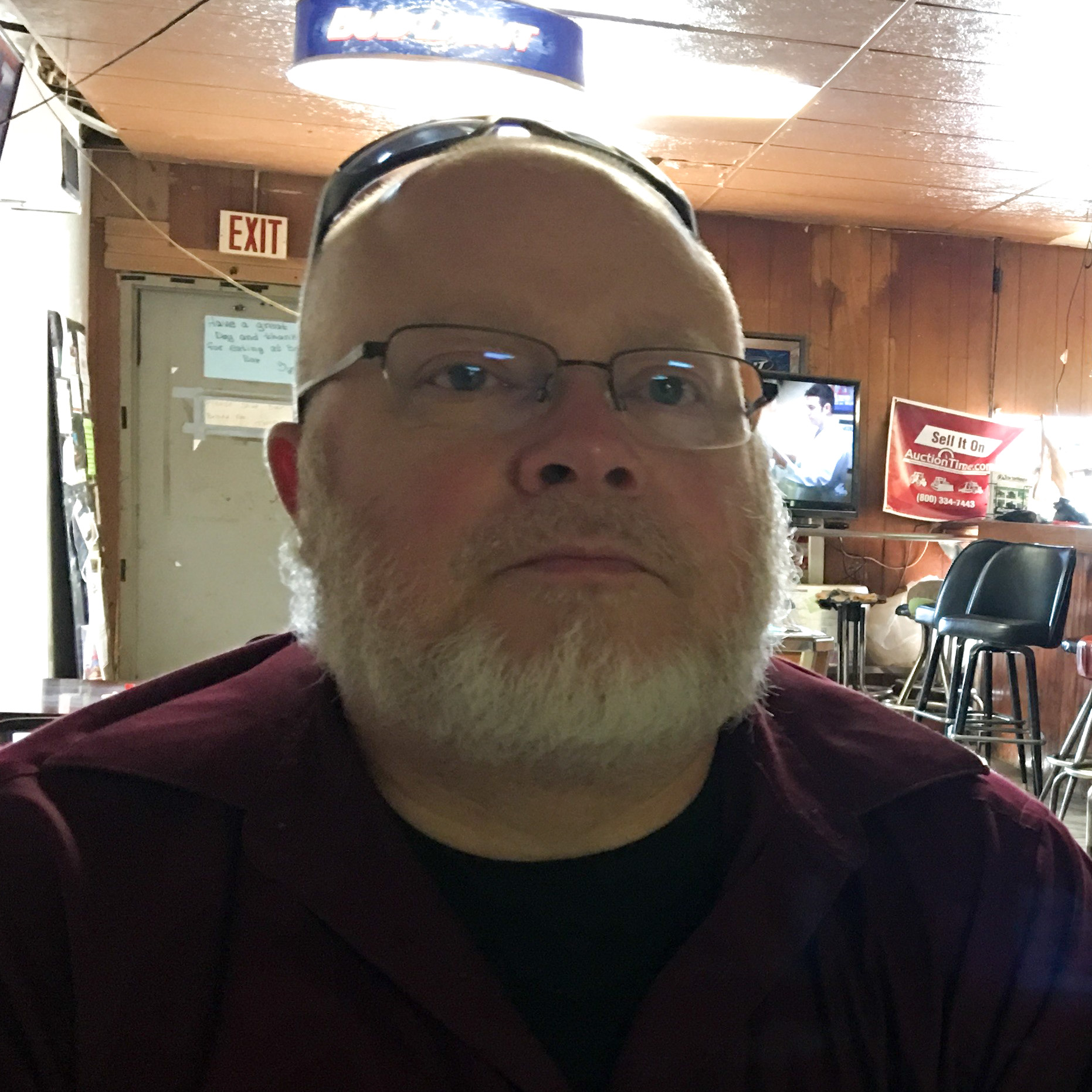
Scott M. Lynch, Ph.D.
MA in Sociology | 1995
Professor, Department of Sociology and Population Research Institute (DUPRI), Duke
University
What advice would you give current students or recent graduates interested in pursuing
a career in your field?
There are two parts to my recommendation. First, take advantage of every opportunity
you have to be involved in research and teaching. Simply going to classes is not
preparation enough for a career as an academic. Part of being involved in research
means writing papers, and not simply collecting data or helping a faculty member analyze
data. So, try to write publishable papers to gain experience in that process. That
process gets easier the more you work at it AND the more published papers you read—so
read a lot. Second, take every opportunity you can to learn about professionalization.
That means talking with faculty and asking them questions about how they managed graduate
school, what the job market is like, what they think is important for getting a job,
etc. Especially ask the younger faculty who have graduated more recently, because
they have had more recent exposure to what the discipline looks like at other institutions.
Most of succeeding in this business is working hard, but part of it is also working
smart—being strategic about how you spend your time. For example, writing and publishing
book reviews is not a productive use of time. Collecting one’s own data involves
a huge time investment and may not be necessary, so look to see if data sets already
exist that can help you address your research questions. Try to kill more than one
bird with every stone. If a course requires writing a paper, try to make it a publishable
one, rather than just writing to satisfy a course requirement. Etc.
Why did you choose to purse an MA in Sociology at the UofA?
I was an undergraduate sociology/criminal justice major at Arkansas, and I wanted
to go on to graduate school in sociology. However, my early undergraduate GPA was
not strong enough to get admitted to top PhD programs with funding, and I felt like
I was not necessarily prepared to enter such a program, so I opted to stay at Arkansas
for another two years to work on the MA.
What did you do upon graduating from the MA in Sociology program?
In my second year of the MA program, I applied to six PhD programs based on geographic
considerations and my interests. I was admitted to three of them and opted to go
to Duke University for the PhD. I spent six years in the PhD program, earning an
MS in statistics along the way. After I graduated (2001), I took an assistant professor
position in the sociology department at Princeton University. I was tenured there
and promoted to associate professor in 2007 and full professor in 2010. I remained
there until 2014, when I took a position back at Duke University. I’m currently a
professor of sociology at Duke, have a courtesy appointment in the department of Community
and Family Medicine in the medical school, and am the training director for Duke’s
Population Research Institute.
What is your greatest professional accomplishment?
I’m not sure what my greatest professional accomplishment is. Perhaps helping play
a role in introducing Bayesian statistics to sociology. My 2007 book on Bayesian
statistics and estimation, as well as some of my methodological work in demography
and sociology helped me earn the Leo Goodman award for early-career contributions
to sociological methodology from the ASA’s methodology section in 2014.
How did your education in the MA Sociology Program prepare you for what you are doing
today?
My MA training at Arkansas was crucial in preparing me for a PhD program. I am not
sure what the structure of the MA program is like now, but when I was a student, the
program provided a general, but detailed education in contemporary sociological theory
and methods. I was also fortunate enough to get first hand research experience as
an RA my first year in the program, TA experience in the first semester of my second
year, and teaching experience in the second semester of my second year, teaching introduction
to sociology. The RA position involved the full research process, from designing
a survey, to collecting data, to analyzing it. In fact, I used the data in my masters
thesis. Frankly, I’m not sure I could’ve received any better training both for subsequent
graduate work and for what I do now. My job, as a professor at an R1 institution
primarily involves research and teaching. I do not engage in primary data collection,
but after my RA experience, I know how it is done and teach it. Further, a crucial
component of being a professor is learning how to manage your time, including switching
between roles as a researcher and a teacher. The best way to learn how to do that
is to do it, and I had that experience at Arkansas.
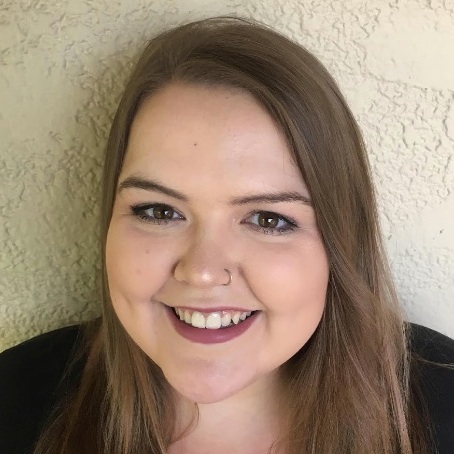
Jill Niemeier
BA and MA in Sociology | 2018
Lecturer of the Sociology & Criminology Department at the University of Arkansas
I chose to pursue an MA in sociology at the University of Arkansas after obtaining
my BA from the same program. The classes that I took in undergrad made me fall in
love with sociology and I wanted to know more about the discipline. I was also acquainted
with many of the faculty in the department and had positive encounters with my sociology
professors at the U of A.
Upon graduating, I decided to do a year of service as an AmeriCorps VISTA. I serve
at the University of Arkansas in the Center for Community Engagement as the Outreach
and Engagement Program Advisor. In addition to my VISTA position, I am teaching an
online general sociology course at the University of Arkansas. I’m very grateful that
I get to share my love of sociology with my students.
I’ve had several personally significant accomplishments in my education and my work
experience. I think it would be easy to say that my Master’s thesis was a very notable
achievement. However, I think that the most significant to my professional development
was in my first year of the MA program, during my assistantship at the Community and
Family Institute when we did the Point-in-Time (PIT) Homeless Census in Northwest
Arkansas. The PIT is a count of sheltered and unsheltered homeless individuals in
Washington and Benton counties. It takes a team of volunteers to perform surveys,
a lot of collaboration from the community, and it results in a lot of data. I was able to take some responsibility and ownership over this data during
the collection, management, and analysis processes. My advisor, Dr. Fitzpatrick, let
me take the reins on this project, which lead to a lot of skill development in a relatively
short amount of time. In addition to wrangling the data, I was able to create infographics
and other visuals interpreting the data. This accomplishment is so notable to me,
not because it was the biggest or most difficult project that I worked on, but because
I was able to jump in headfirst, overcome obstacles, and feel really proud about the
product.
My experience in the MA in Sociology program has definitely provided me with skills
relevant to my year of service as a VISTA. I am advising a group of student-leaders
that are developing multiple volunteer and service programs on campus. My experience
in the MA program has taught me to challenge students’ perspectives, help them frame
the issues that they are tackling, and help them think about long-term sustainability
for their various programs. I am able to provide my students and office with skills
such as research design and implementation, program assessment skills, analytical
skills, and communication skills. I value being able to look at a complex issue and
break it down into accessible goals or tasks, as well as being able to communicate
that clearly to others.
Honestly, I was under the impression that I was too “overqualified” to be an AmeriCorps
VISTA or do a year of service after receiving my Master’s, but that is far from true.
I would recommend a year of service to anyone who is interested in a human service-related
career, but isn’t sure or doesn’t feel fully prepared. You get a lot of hands-on experience
and get to peer into what the field is really like on a day-to-day basis. The VISTA
program, specifically, is focused on capacity building and development, so you have
the opportunity to develop a lot of relevant skills that can project you forward within
the field. Always keep in mind how sociology pertains to whatever topic or career
path you want (because it definitely does!) and be able to articulate that to others.
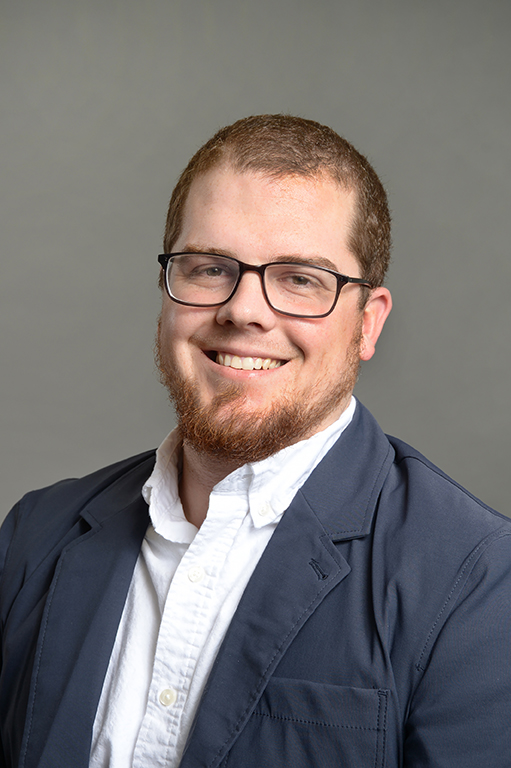
Don Willis, Ph.D.
MA in Sociology | 2013
Assistant Professor at the University of Arkansas at Little Rock
What did you do upon graduating from the MA in Sociology program?
After completing the MA program, I began working towards my PhD in sociology at the
University of Missouri - Columbia. I recently completed that degree and have taken
an assistant professor position at the University of Arkansas at Little Rock.
Why did you choose to purse an MA in Sociology at the UofA?
I was a sociology major as an undergraduate and knew that I was interested in this
field. After completing my BA in sociology at UCA, I took a year off to volunteer
with Heifer Int./AmeriCorps and do a little research on graduate school programs.
The University of Arkansas Sociology Department stood out to me as a program where
I would have a lot of opportunities to get engaged with applied sociological research
that impacted the surrounding community. That applied element paired with an amazing
faculty with a variety of teaching and research interests made the decision to choose
the sociology graduate program at U of A an easy one.
What is your greatest professional accomplishment?
If I had to point to one single accomplishment that I am most proud of, it would be
the students who I have helped inspire to go on to graduate school. I have instructed,
mentored, and supported through letters of recommendation several students who have
been accepted into prestigious graduate programs, including Washington University
in St. Louis. While research is extremely important to me, there have been few experiences
as rewarding as watching students develop their sociological imaginations and then
seeing their excitement when they've been accepted into a great graduate program.
How did your education in the MA Sociology Program prepare you for what you are doing
today?
The MA in Sociology provided me a set of theoretical and empirical tools that helped
me develop interesting sociological questions and subsequently design research to
answer those questions. Furthermore, coursework helped me develop a sense of pedagogical
styles that I felt worked well for offering these same tools to future students of
my own. All of these are skills that I continue to use today as an assistant profess
of sociology.
What advice would you give current students or recent graduates interested in pursuing
a career in your field?
Get involved in research as soon as possible. If you didn't come in with a research
question of your own, this will help you develop one. Spend as much time with your
professors as you can. They aren't just knowledgeable about their areas of research,
they hold important cultural and institutional knowledge that you can't find in a
handbook or by Googling. Ask the questions you feel embarrassed to ask. If a professor
asks if you'd like to get involved with their research or another project, do it even
if you feel like you are not totally sure what you are doing--you'll mess up, but
you'll learn. Cherish any time you have to just sit and read. Finally, try to get
a clear idea of what you want from the program and do your best to work with mentors/advisors
to make the program suit your goals. Those goals aren't the same for everyone, so
its crucial for you to communicate your goals to the faculty you will be working with.